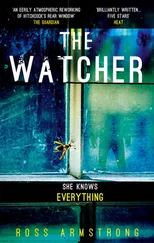‘What do you do?’ Rowan interjected.
‘I’m a conservator.’
‘A leading restorer,’ Frederick enthused. ‘Aran Hunter’s put his hand to some tremendously important art works, the royal collection, too, am I not right, my boy?’
Making a dismissive gesture he continued, sotto voce .
‘I’m freelance these days. Mostly Italian fifteenth- and sixteenth-century stuff, all scientific tricks mostly, a sort of make-do and mend.’ He paused. ‘The problem is, Fred, I have a picture at my flat which I intended to assess for one of the dealers. The building is pretty secure, only one entrance and a twenty-four-hour porterage, but I had no notion the thing would have to sit possibly for weeks in an empty flat. Could you, as an enormous favour, take it back with you to the country? Just for a month or so? It would be safer in your custody and I’d feel happier. The central heating goes on this week and most of the residents in my block seem to prefer desert heat.’ Appealing to Frederick’s kind heart, he wheedled, ‘It’s a very small painting.’
‘I suppose it will be all right,’ the old man reluctantly agreed. ‘But you would have to introduce Rowan to the porter. He’s not going to allow a stranger to enter your flat and pack a suitcase unless he sees you in person, is he?’
Rowan said, ‘We could follow Aran’s taxi in the Volvo and I could pack a bag and get the picture from the flat. Then you could take the cab back to the clinic and Frederick and I drive straight to Oxford.’
‘It’s a big responsibility,’ Frederick demurred, desperately aware of the treasures Aran dealt in. An alternative struck him. Excitedly he banged the table, overturning his Chablis.
‘Why don’t you come down to Mayerton with us? Stay as long as you like. I couldn’t guarantee a thatched cottage would be more environmentally sound than an overheated flat, but you could keep an eye on the picture yourself. What’s the insurance situation, moving these priceless objects?’
‘No problem,’ Aran assured him. ‘I do it all the time. Even big stuff. I’ve got my own security van parked at the flat, fitted with special niches for crates and so on.’
‘How about convalescing at Mayerton, then?’ Frederick enthused.
‘Would get you out of the clinic,’ Rowan added. ‘And if you like, I could drive us all in your van and then you’d be able to spread out your leg in the back and take the wheelchair along too.’
Aran brightened. ‘That sounds really too generous for words, Fred. Are you sure? I’m a cantankerous sod, hell to live with even without a broken leg.’
‘We’ll manage.’ Frederick beamed across the table, enchanted by the unexpected turn of events which had brought such exhilarating company into his dull pond of a life. ‘Will your doctor allow it?’
‘Let’s not ask,’ Rowan countered. ‘Just go. I’ve got to come back to London. I’ll call in and return the kilt if you like and Aran can phone his doctor from the cottage.’
It all seemed preposterously simple. They looked at each other and clinked glasses, conspirators in crime.
The sky had become overcast. The waiter brought the bill, anxious to clear the outside tables before the rain. Rowan went off with him to greet the chef, an old chum of hers who appeared fifteen minutes later, wreathed in smiles, one arm affectionately about her shoulder. She and the waiter bundled Aran back in his wheelchair amid much ribald speculation from the chef regarding the underpinnings of ‘ze wunnerful Scotch skirt’.
Once out on the pavement, Rowan proposed getting a taxi for the men while she followed in the Volvo. Just as she magically produced one, Frederick declared an undeniable call of nature and ducked off down to the men’s lavatory conveniently to hand.
Simon had warned Rowan about Frederick’s unscheduled stops, often of indeterminate duration and always inconvenient. It began to pour. Aran had already lurched awkwardly inside the taxi and she joined him, anxiously wondering if it would eventually be necessary to dispatch the cab-driver to winkle the old man out.
Seated close to her, Aran relaxed in her fragrance. It was what he could only describe as ‘earthy’: entirely natural and infinitely appealing to a man whose girlfriends moved in synthetic clouds of Chanel and Givenchy. Unaware of his appraisal, she sat on the edge of the seat, holding the door ajar, watching through the sheeting rain for Frederick’s reappearance at the top of the steps.
With a sigh of relief she jumped out and pushed the old man into the taxi, mouthing directions to the driver, her hair already drenched. Frederick offered up a silent prayer that he had not seen the last of Simon’s Volvo and Aran for his part prayed that he had not seen the last of this new style Artemis rapidly disappearing into the wilderness of rain-sodden Chelsea.
CHAPTER 4
The sudden downpour seemed to penetrate Simon Alington’s mood, settling in a gloomy puddle in his brain. Removing his wet raincoat, he sat in the departure lounge at Heathrow dismally contemplating the wrangle ahead of him in Amsterdam. The printers often took a stolid, obdurate stance and Simon, ever wishing to sidestep a disagreement, knew he must stand firm on this one. He lit a small cigar and hunched over his flight bag, staring at the floor, trying to assemble a tactful line of attack.
‘Hello. It is Simon Alington, isn’t it?’
Simon’s head shot up and he found himself the focus of a tall man wearing a dark, double-breasted suit and an immaculate shirt which only the devoted attentions of a whole team of body slaves could have produced. Simon stood, fumbling for the key to this obviously familiar face now level with his own. The man held out his hand.
‘Oxford. Then Paris on that post-degree shindig. We briefly shared that awful apartment in Pantin, remember? La Nécropole !’
‘Laurence, Laurence—er …’
‘Erskine.’
They shook hands, now neatly tabbed, half-remembered disagreements swirling awkwardly between two grown men on business trips.
They conferred on flights and agreed on a quick drink in the bar.
‘So we’re both going to be in Amsterdam?’
‘I’m at the Lely for a couple of nights,’ Simon replied, ‘probably longer. I’m not sure. And you?’
‘Interpol conference. Three days. I’m waiting for an American colleague. We’re taking an afternoon flight. Get our act together before Amsterdam.’
‘I have always said conferences were a waste of time. All the talking done in quiet corners, anything useful that is,’ Simon joked. He checked his watch. ‘And Laurence Erskine’s Chief Commissioner by now, I imagine,’ he added, amused by the divergence of their paths since Paris.
‘Inspector. But upwardly mobile, you might say.’
Simon was intrigued by the emergence of such a sleek creature from the rather ordinary chrysalis of scruffy fellow-student he remembered. They had both changed since La Nécropole . Erskine was certainly attractive, he would grant him that: his glance direct, his smile genuinely humorous. But the easygoing air seemed merely the velvet glove, an innate intelligence sheathed in social acceptability. Affable yet somehow dangerous.
‘Amazed you joining the police.’
‘Amazed you becoming a fancy decorator. Saw your picture in Interiors last month. Knew it rang a bell.’
‘Didn’t know flatfeet trod the glossies.’
The years stripped away with the well-worn lashes of undergraduate banter and by the time they had filled in the more obvious blanks, Simon’s flight was called. He swallowed his drink, gathered his raincoat and they shook hands. He became serious.
‘Funny bumping into each other like this. I feel rather guilty about something I should have reported before I left. This urgent trip somewhat threw me and—’ he shrugged apologetically—‘no one’s keen to get involved with the police. I couldn’t chance being held over in London just now. But I would value your advice.’
Читать дальше












